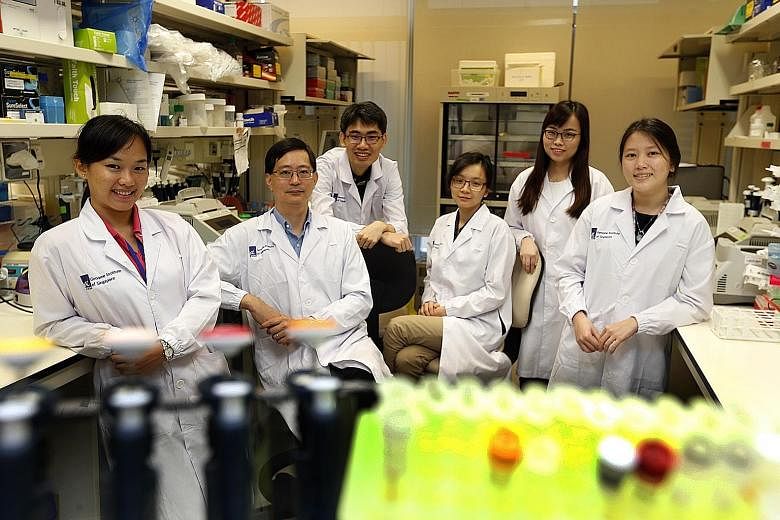New home-grown technology developed by scientists at the Agency for Science, Technology and Research (A*Star) highlights how genes in healthy stomach cells are altered when they become cancerous, pointing the way to faster and more accurate diagnosis and treatment.
The technique allows researchers to identify chemical alterations to DNA called epigenomic markers in a way not previously possible.
Biomarkers provide information about the state of a particular disease in an individual, by indicating how aggressive it is, or whether patients will respond to a particular mode of treatment, for instance.
Current methods to study cancerous cells require large amounts of DNA to measure epigenomic biomarkers. So existing methods rely on laboratory-grown cell lines, said Professor Patrick Tan, who led a team of six scientists on the study, which started in 2011.
But the more a patient's cells are altered in the laboratory, the likelier it is that they will not give accurate results when it comes to testing and treating disease.
"Cell lines grown in labs are typically exposed to environments and conditions that are very different from the actual state in human tissue," explained Prof Tan, who is programme director of Polaris, a national scheme to turn biomedical research findings into clinical use.
The Singapore researchers developed a DNA-sequencing technique known as Nano-ChIPseq, a process that involves several chemicals, designed to monitor epigenomic changes in patient tissue.
The process, Prof Tan explained, involves four main steps - from extracting DNA from patient samples, and purifying and amplifying the DNA carrying epigenomic changes, to sequencing the purified DNA and analysing the data to find the strongest disease-associated changes. He said the new method is more efficient as it uses less tissue, which allows the researchers to study the cells just as they appear and behave in the patient.
"Because epigenomic changes are very sensitive to the environment, this technique allows us to measure the true disease state more accurately," he said.
Stomach cancers are caused by environmental factors, including infection by a bacterium known as helicobacter pylori, smoking and diet.
About 500 people here are diagnosed with stomach cancer every year, and half suffer a relapse even after treatment. It is the second leading cause of cancer death worldwide. In Singapore, it is the seventh-most-common cancer for men and the ninth-most-common cancer among women.
Research into the cancer, which is also known as gastric cancer, is neglected in the West, where the incidence of such cancers is lower.
"Stomach cancer occurs more in Asia and we are well-placed to apply this technique in the region," noted Prof Tan, who is also senior group leader at A*Star's Genome Institute of Singapore.
Dr Iain Tan, a consultant medical oncologist at the National Cancer Centre Singapore, said A*Star's new technique "overcomes previous technical barriers to allow for a comprehensive and sophisticated analysis of epigenetic changes in patient samples".
"Characteristic patterns of epigenetic changes could potentially be used for more precise cancer diagnosis," he said. "There are many drugs-in-development that target these epigenetic enzymes and the method could potentially be used to understand how and in whom these drugs work best."
A*Star has filed at least two patents for the invention since last year. The study was also reported in the prestigious science journal Nature Communications.
Amelia Teng

